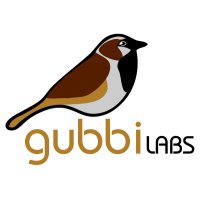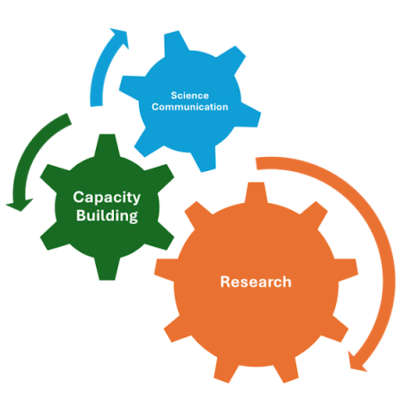About Gubbi Labs

Gubbi Labs is a research collective with strong foundations in research and underpinnings of a social enterprise. The Labs work on a host of domains ranging from sustainable ecosystems to liveable settlements. The Labs is powered by a collective with interdisciplinary expertise and focus on research, development, capacity building and outreach. Gubbi Labs Research Foundation was incorporated on 5th July 2021 as a not-for-profit company under section 8 of the Companies Act (2013) with the Ministry of Corporate Affairs, Government of India [CIN: U85300KA2021NPL149085].
The Labs has an extreme focus for taking theory to practice and vice-versa with expertise in research on cities and ecosystems. Specifically, it has expertise in geospatial science and technologies, field ecology, urban and regional planning, and transportation. Gubbi Labs has three primary agenda: research; capacity building (training); and science communication. The graphic depicts the linkages of these agenda. At the core of Gubbi Labs lies the research agenda that gets the highest priority. This is followed by capacity building and science communication, the other core activities of the Labs.

Gubbi Labs Research Foundation also inherits the legacy built by Gubbi Labs LLP which has transferred its assets on research, capacity building and science communication.
Research on urban areas is pursued under India Urbanscape, while research on ecology is pursued under Project Ashoka. Capacity building is pursued through short-courses and workshops to disseminate knowledge and experience gained through both research and practice. Gubbi Labs is committed for sustainable development and empowerment of society through application of appropriate science, technology and management practices. The Labs is committed to enhancing social capital and to work on enabling opportunities for overall societal empowerment and its development. The success of Labs efforts, besides financial metrics, is measured by societal impact – the overall reach to number of people it has impacted, direct and indirect, through its combined efforts in research, capacity building and science communication efforts.
